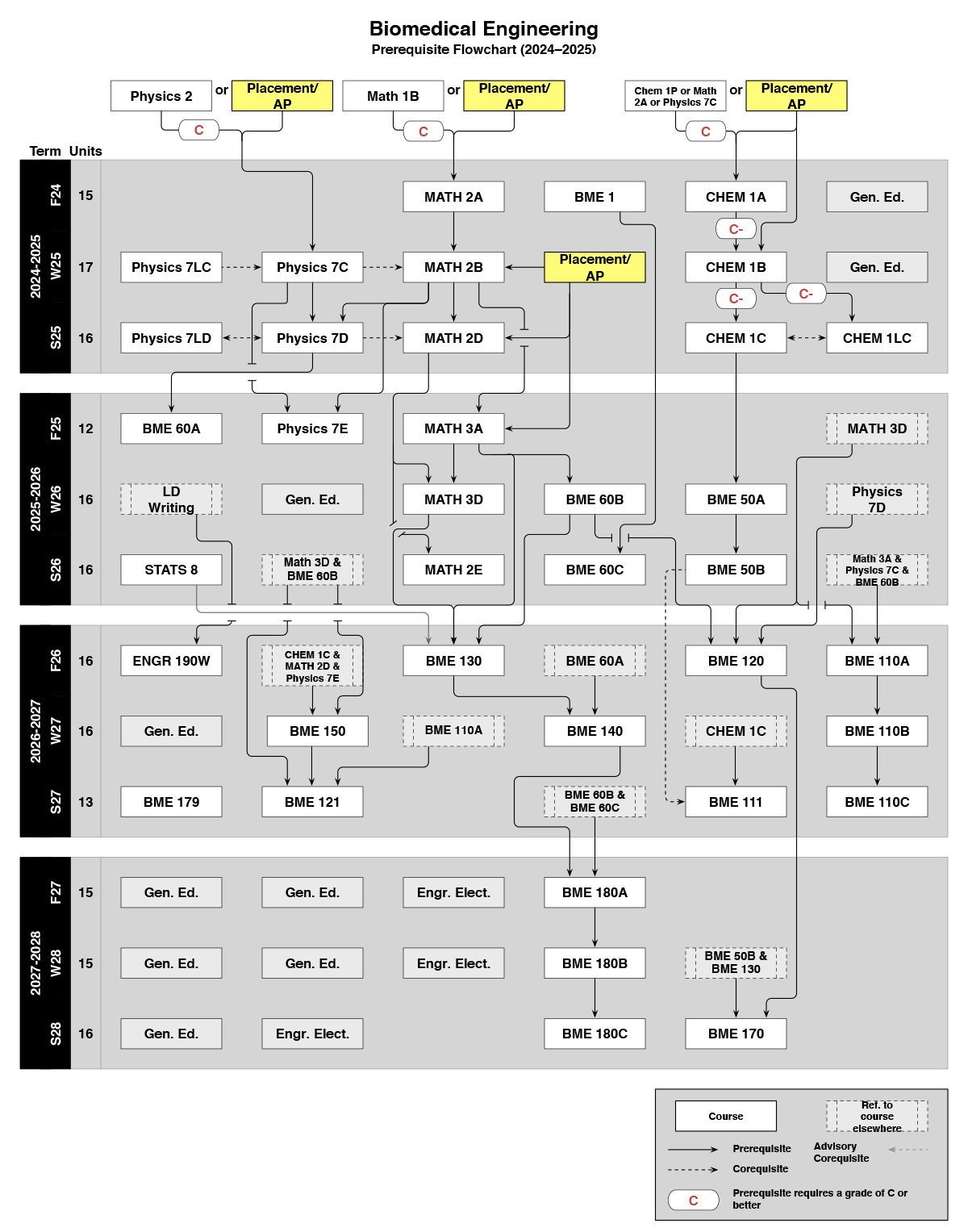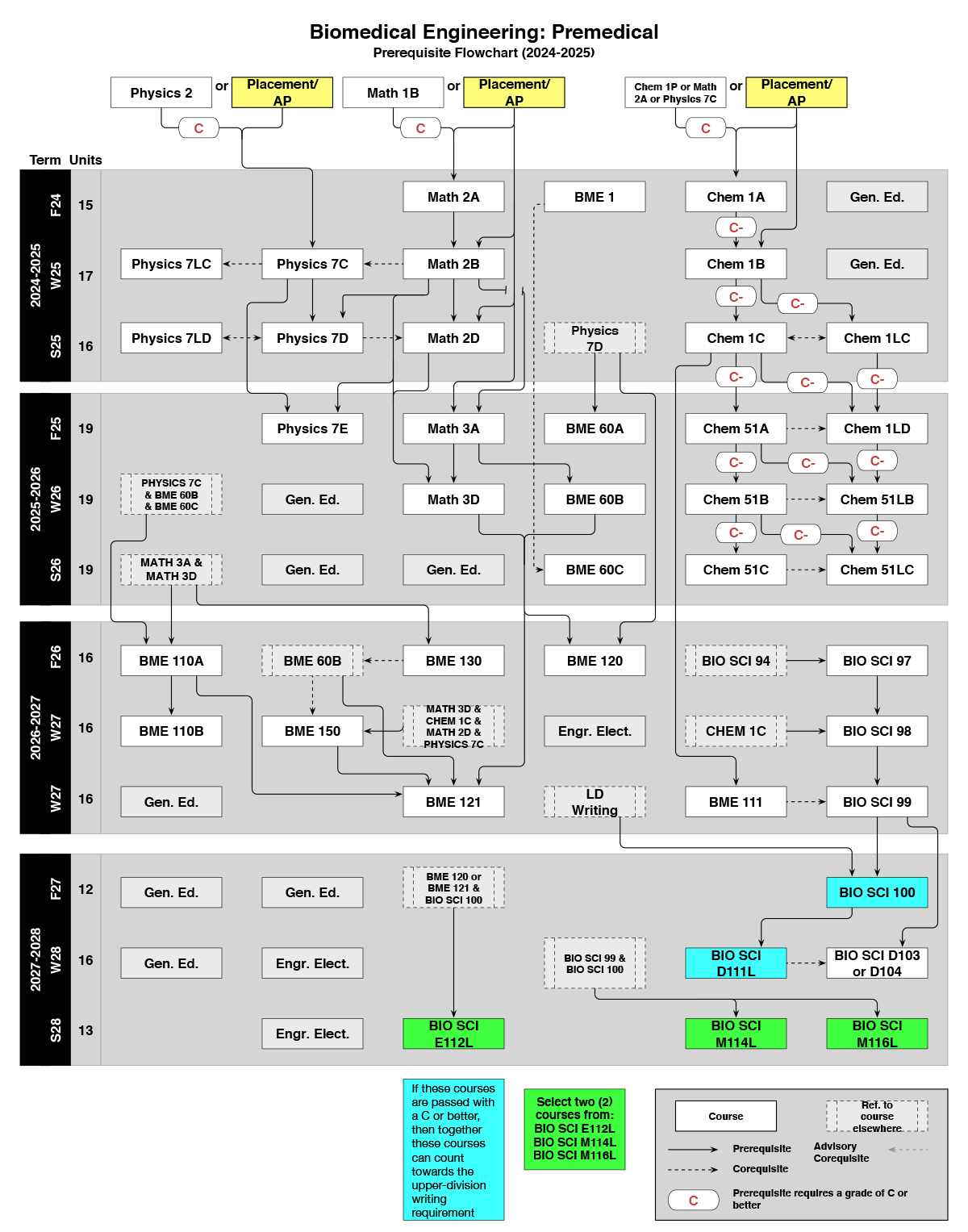Biomedical engineering combines engineering expertise with medical needs for the enhancement of health care. It is a branch of engineering in which knowledge and skills are developed and applied to define and solve problems in biology and medicine. Students choose the biomedical engineering field to be of service to people, for the excitement of working with living systems, and to apply advanced technology to the complex problems of medical care. Biomedical engineers may be called upon to design instruments and devices, to bring together knowledge from many sources to develop new procedures, or to carry out research to acquire knowledge needed to solve new problems.
During the last 20 years, we have witnessed unprecedented advances in engineering, medical care, and the life sciences. The combination of exploding knowledge and technology in biology, medicine, the physical sciences, and engineering, coupled with the changes in the way health care will be delivered in the next century, provide a fertile ground for biomedical engineering. Biomedical engineering, at the confluence of these fields, has played a vital role in this progress. Traditionally, engineers have been concerned with inanimate materials, devices, and systems, while life scientists have investigated biological structure and function. Biomedical engineers integrate these disciplines in a unique way, combining the methodologies of the physical sciences and engineering with the study of biological and medical problems. The collaboration between engineers, physicians, biologists, and physical scientists is an integral part of this endeavor and has produced many important discoveries in the areas of artificial organs, artificial implants, and diagnostic equipment.
Biomedical Engineering Educational Mission and Goals


